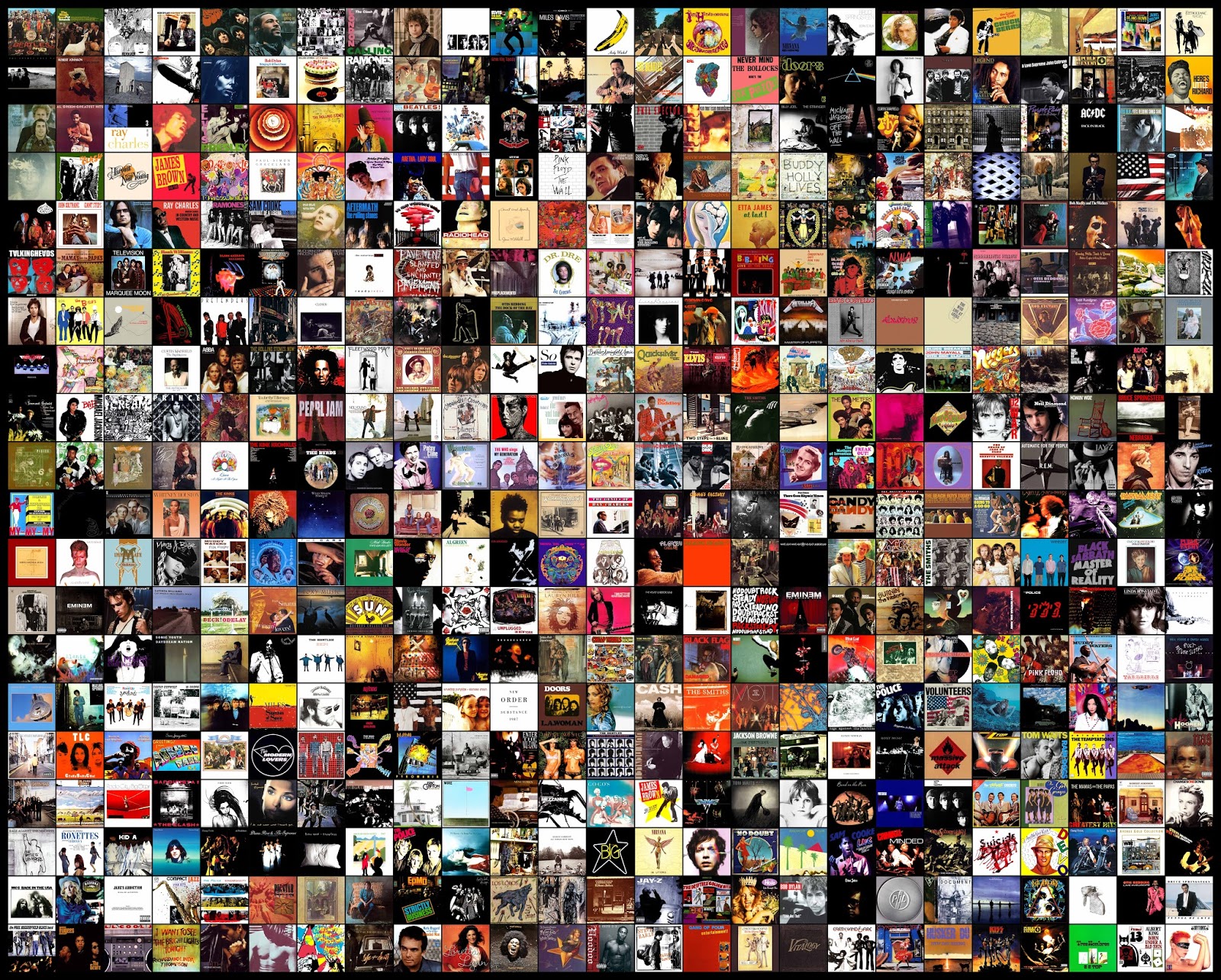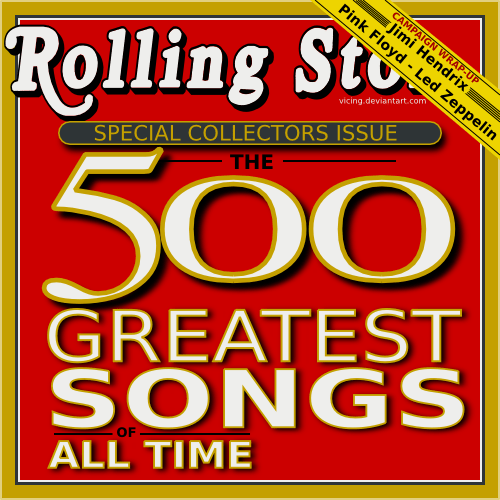Rolling Stone's 500 Greatest Albums: A Sonic Odyssey
Ever feel lost in a sea of music, unsure where to turn next? Like a lighthouse in the sonic fog, Rolling Stone magazine's 500 Greatest Albums list has guided listeners for decades. But is it a definitive canon or a flawed snapshot of musical history? Let's dive into the swirling currents of this influential ranking and explore the waves it's made.
Rolling Stone's 500 Greatest Albums list, first published in 2003, attempts to capture the most significant and influential albums of all time. It's a compilation based on votes from musicians, critics, and industry figures, representing a diverse range of genres and eras. However, the list has been a constant source of both celebration and controversy. Its subjective nature and perceived biases have fueled countless debates among music fans.
The list's origins lie in the desire to create a cultural touchstone, a reference point for music lovers. It aimed to spark discussion and introduce listeners to potentially unfamiliar artists and sounds. The impact of the 500 Greatest Albums has been significant, influencing record sales, radio playlists, and even shaping how music history is perceived.
A key issue surrounding the list is its inherent subjectivity. Can any ranking truly claim to objectively define "greatest"? The list’s reliance on expert opinion inevitably reflects certain biases, potentially overlooking important genres or artists. Furthermore, the list has been criticized for its Western-centric focus and underrepresentation of female artists and artists of color. These criticisms have led to revisions and updates over the years, reflecting changing musical landscapes and evolving critical perspectives.
Essentially, Rolling Stone’s 500 Greatest Albums is a snapshot in time, reflecting the tastes and perspectives of a particular group of people at a particular moment. Understanding this context is crucial for appreciating the list's strengths and acknowledging its limitations.
One benefit of the list is its ability to introduce listeners to a wide range of music. For example, a listener primarily interested in rock might discover groundbreaking jazz albums like Miles Davis' *Kind of Blue*. Another benefit is the opportunity for discussion and debate. Disagreements about the list's inclusions and omissions can lead to deeper engagement with music and critical analysis. Finally, the list serves as a valuable historical document, reflecting the evolution of musical trends and tastes.
Want to explore the 500 Greatest Albums? Start by checking out the official Rolling Stone website. Streaming services like Spotify and Apple Music often have curated playlists based on the list. Engage with online forums and discussions to share your thoughts and discover new perspectives.
Advantages and Disadvantages of Rolling Stone's 500 Greatest Albums
| Advantages | Disadvantages |
|---|---|
| Exposure to diverse music | Subjectivity and potential bias |
| Sparks discussion and debate | Western-centric focus |
| Historical document of musical trends | Underrepresentation of certain artists |
Best Practices for engaging with the list: 1. Listen with an open mind. 2. Explore different genres. 3. Research the historical context. 4. Engage in discussions. 5. Develop your own critical perspective.
Examples of albums on the list: 1. *Sgt. Pepper's Lonely Hearts Club Band* by The Beatles. 2. *What's Going On* by Marvin Gaye. 3. *Pet Sounds* by The Beach Boys. 4. *London Calling* by The Clash. 5. *Blue* by Joni Mitchell. These albums represent diverse genres and styles, showcasing the breadth of the list.
Frequently Asked Questions: 1. How often is the list updated? 2. Who votes on the albums? 3. How are the albums ranked? 4. Can anyone submit an album for consideration? 5. What criteria are used for selection? 6. Is the list definitive? 7. Why are some popular albums not included? 8. How has the list changed over time?
Tips and tricks: Dive into specific genres or eras. Create your own playlists inspired by the list. Read reviews and analyses of the included albums.
Rolling Stone’s 500 Greatest Albums list is undoubtedly a powerful force in the music world. It's a starting point for musical exploration, a catalyst for conversations, and a reflection of our changing cultural landscape. While its inherent subjectivity and limitations are important to recognize, the list remains a valuable resource for anyone seeking to delve deeper into the rich tapestry of music history. Embrace the debate, explore the sounds, and discover your own musical journey. Let the 500 Greatest Albums be your guide, but don’t be afraid to forge your own path through the sonic wilderness. Ultimately, the greatest albums are the ones that resonate with you, regardless of any list or ranking. Start exploring today and uncover the sonic treasures waiting to be discovered. This list, while not without its flaws, remains a vital document of musical history, sparking debate and inspiring countless listeners to discover new artists and sounds. Its impact on music culture is undeniable, making it a fascinating and essential topic for any music enthusiast.
Craigslist west virginia pets
Upgrade your bedroom exploring exquisite iron bed designs
Dreaming of a soaking tub heres what to know about bathtub dimensions














